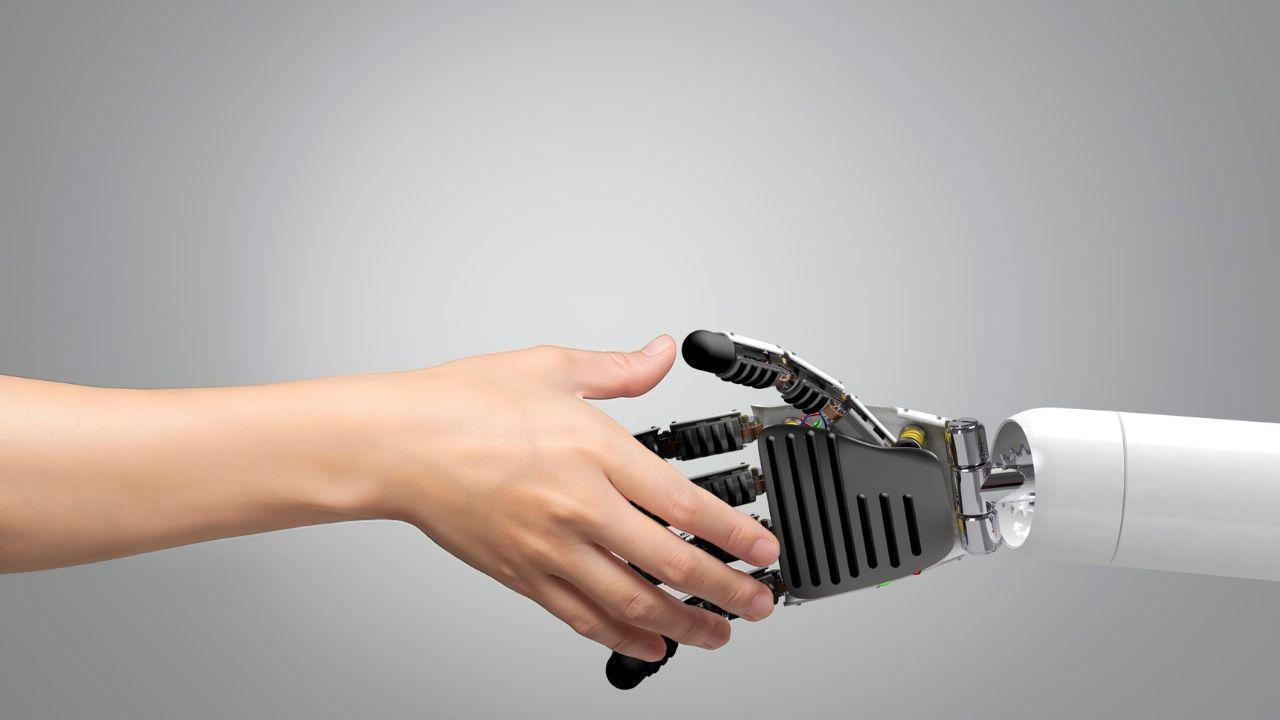
Post by: Vansh Kumar
Technology is evolving at an unprecedented pace, and AI and automation are shaping the future of work in ways we never imagined. From streamlining processes to creating new job opportunities, artificial intelligence and automation are revolutionizing industries worldwide. But what does this mean for workers, businesses, and society as a whole? Let's dive into how these advancements are transforming the workforce and what we can expect in the years ahead.
The integration of AI and automation into various industries has been accelerating over the last decade. Machines equipped with artificial intelligence are now capable of performing complex tasks, analyzing vast amounts of data, and even making decisions with minimal human intervention. Automation has already reshaped industries like manufacturing, healthcare, finance, and customer service, improving efficiency and reducing costs.
Companies are leveraging AI-powered chatbots to handle customer inquiries, automating repetitive administrative tasks, and using machine learning algorithms to make data-driven business decisions. As technology continues to advance, the capabilities of AI and automation will only expand, making them indispensable in the modern workplace.
One of the biggest concerns about AI and automation shaping the future of work is the fear of job displacement. While automation does replace certain manual and repetitive jobs, it also creates new opportunities. History has shown that technological advancements often lead to shifts in employment rather than outright job loss.
For example, automation in manufacturing led to the rise of new roles in robotics, programming, and maintenance. Similarly, AI is creating demand for data scientists, machine learning engineers, and AI specialists. While some traditional jobs may disappear, new ones will emerge, requiring workers to adapt and acquire new skills.
Beyond job displacement, AI and automation are enhancing productivity across industries. Businesses that integrate these technologies can process data faster, reduce human error, and optimize decision-making. For instance, AI-driven analytics help companies predict market trends, automate inventory management, and streamline supply chains.
In healthcare, AI assists doctors by analyzing medical scans with precision, helping detect diseases early. In finance, AI-powered trading algorithms process transactions at lightning speed. By reducing the burden of repetitive tasks, AI enables workers to focus on creative, strategic, and high-value activities.
As AI and automation shape the future of work, the demand for digital literacy and specialized skills is growing. Companies and employees must adapt to the changing landscape by investing in upskilling and reskilling programs. Workers who learn AI-related skills, data analytics, cybersecurity, and cloud computing will have a competitive advantage in the job market.
Governments and educational institutions are also playing a crucial role in preparing the workforce for AI-driven jobs. Online courses, certifications, and vocational training programs are becoming more accessible, allowing employees to gain relevant skills for the evolving job market.
Rather than replacing humans, AI is expected to complement human capabilities. The future of work lies in collaboration between humans and AI, where technology handles routine tasks while employees focus on innovation, problem-solving, and interpersonal communication.
For example, AI can assist designers in generating creative ideas, help legal professionals analyze vast legal documents, and support doctors in diagnosing diseases. By working alongside AI, employees can enhance their productivity and effectiveness.
While AI and automation bring numerous benefits, they also raise ethical and social concerns. Issues such as job displacement, data privacy, and algorithmic bias need to be addressed to ensure that AI is used responsibly. Companies must implement fair AI policies, promote diversity in AI development, and ensure transparency in decision-making processes.
Governments and organizations must also establish regulations to protect workers' rights, ensure fair wages, and provide opportunities for reskilling. The goal should be to create an AI-driven workforce that benefits everyone rather than exacerbating inequality.
Summary: Technology is evolving rapidly, with AI and automation shaping the future of work by streamlining processes, increasing efficiency, and creating new job opportunities. While some fear that automation will replace human jobs, history shows that technological advancements lead to shifts in employment rather than outright job losses. AI is enhancing productivity across industries, from healthcare and finance to manufacturing and customer service. To stay competitive, workers must focus on upskilling and reskilling, learning AI-related skills and digital literacy. The future of work lies in human-AI collaboration, where technology handles routine tasks while humans focus on creativity and problem-solving. However, AI also raises ethical and social concerns, including job displacement, data privacy, and algorithmic bias. Governments, businesses, and educational institutions must work together to ensure AI is used responsibly and benefits everyone.
Disclaimer: This article is published by DXB News Network for informational purposes only. The content is based on available insights and does not constitute professional advice. While we strive for accuracy, readers should conduct their own research before making decisions based on the information provided.
#trending #latest #AI #Automation #FutureOfWork #Technology #Innovation #DigitalTransformation #ArtificialIntelligence #Workforce #Productivity #TechRevolution #breakingnews #worldnews #headlines #topstories #globalUpdate #dxbnewsnetwork #dxbnews #dxbdnn #dxbnewsnetworkdnn #bestnewschanneldubai #bestnewschannelUAE #bestnewschannelabudhabi #bestnewschannelajman #bestnewschannelofdubai #popularnewschanneldubai

Explore how sports evolved from traditional games to modern competitions...Read More.

The UAE has sentenced three people to death for the terrorist murder of Israeli rabbi Tzvi Kogan, marking a rare violent incident in the country....Read More.













7 Free Ghibli-Style AI Image Editors to Try Now
Transform your images into Ghibli-style art with these 7 free AI tools. From dreamy landscapes to an

China Conducts Military Drills Near Taiwan
China's coast guard conducted patrols, inspections, and drills near Taiwan as Beijing announced mili

Man City’s Haaland suffers ankle injury, awaits tests
Erling Haaland picked up an ankle injury in Man City’s FA Cup win. He will see a specialist to asses

New E-Skin Enables Touchless Control and Robot-Like Sensation
Revolutionary e-skin mimics human touch, allowing touchless control, aiding robots, and helping peop

UAE to Launch Digital Dirham CBDC by Year-End for Secure, Efficient Payments
The UAE will introduce its Digital Dirham CBDC by year-end, enhancing security, transparency, and ef